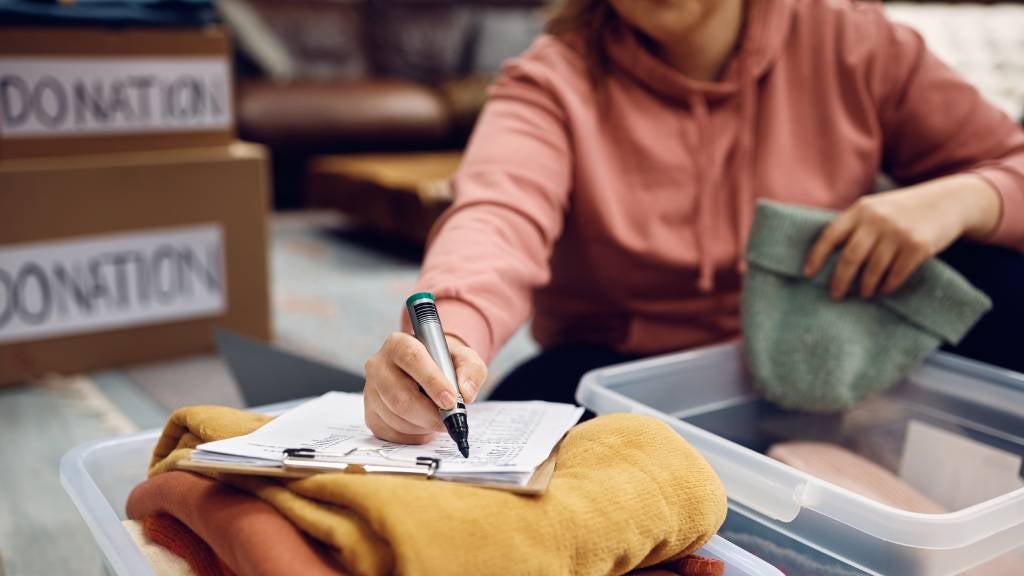Laying mess to rest: Declutter with death cleaning

Decluttering your home – even the thought of it can feel overwhelming. But there’s a Swedish tradition of death cleaning that might offer a more mindful, practical approach. It’s a way to reduce clutter before you pass away, while also making sure your loved ones won’t be burdened with any unwanted possessions after you're gone. Here’s how it can bring clarity and peace to both you and your family.
What is Swedish death cleaning?
Swedish death cleaning tradition (döstädning) is the practice of decluttering with the purpose of organising your belongings so that your family isn’t overwhelmed by your possessions after your death – at a time when they should be grieving. Rather than waiting until the end of life, Swedish death cleaning encourages you to start this process much earlier – often in middle age – to make things simpler for your loved ones when the time comes.
What are the benefits of death cleaning?
As much as the name might cause initial concern, death cleaning has practical and emotional applications. It lets you reflect on what’s really important, whether that’s the items you believe are useful or the keepsakes you think will be meaningful to your loved ones. It also helps you refocus on what really isn’t necessary in your household anymore.
Perhaps most important of all, it can ease the burden on your family who might struggle with sorting through your belongings after your passing. Here’s how death cleaning can be a productive endeavour:
- Emotional clarity: Sorting through your belongings can help you reflect on your life and experiences, so you can focus on what really matters.
- Less stress for your loved ones: Your family won’t have to deal with the overwhelming task of managing your possessions immediately after your passing.
- More space and simplicity: Death cleaning helps make your living space much more organised and clutter-free, which can create a more peaceful home.
- Legacy preservation: By deciding what to keep, donate or pass on, your important items with sentimental or historical value will be properly preserved or given to the right people.
- Environmentally friendly: Donating or recycling any unwanted items helps reduce waste.
Importance of decluttering for your loved ones
If nothing else, death cleaning is a way to prevent your loved ones from having to take on the burden of sorting through years of accumulated things. Taking it on yourself can lighten your physical space while also lightening the emotional weight that your family might have after you’re gone.
Then there’s the benefit of simply participating in death cleaning – it can encourage open conversations with family members about which items are worth keeping, passing down or donating.
5 tips for decluttering
If you’re considering laying mess to rest but still not sure where to begin, here are some tips:
- Start small: Begin with one room or a certain type of item (e.g. clothing or books), which can make the process more manageable and less overwhelming.
- Sort sentimental items: Keep only items that hold real sentimental value for you. As you go through your belongings, ask yourself if this thing is something you truly want to leave behind for others to remember you by.
- Donate or recycle: So many items that clutter up our homes can be donated, sold or recycled. Think about how your unused belongings could potentially help other people.
- Talk to your family: Swedish death cleaning is a way to start conversations with family members about what they value and want to keep. It could even help prevent disagreements later on and make sure your most cherished items are passed on to the right people.
- Maintain your space: Once you’ve decluttered, it’s important to keep your space in good shape. Don’t bring in new things unless they really add value to your life.
Digital declutter
While physical clutter that’s right in front of our face is easy to see and sort through, digital clutter more be something to be mindful of as well. Here are a few things to keep in mind:
- Uninstall unused apps
- Unsubscribe from mailing lists
- Organise your inbox and delete or archive old emails
- Empty your trash folder
- Place documents and photos in labelled folders
- Move important files to cloud storage
- Create back-up of important documents
- Create secure passwords
- Keep log-in credentials in a safe place for loved ones or your estate manager
Don’t forget to declutter paperwork
Receipts, paid bills and other paperwork can pile up. Take the time to sort them into two piles, one for the shredder and one that’s important for safekeeping.
Important paperwork may include:
- Passport
- Birth certificate
- Marriage certificate
- Land titles and house deeds
- Banking information
- Car registration
- Will and estate management documents
- Funeral or life policy details
Organise your final act
Whether it’s decluttering, creating a will, organising your finances, or managing your funeral arrangements – planning for the future can be cathartic and calming.
While you’re organising all these aspects of your life, you may want to look into funeral insurance. Visit Guardian Funeral Insurance today to see if it’s suitable for you. You can also request a quote to learn more.
3 Dec 2024
